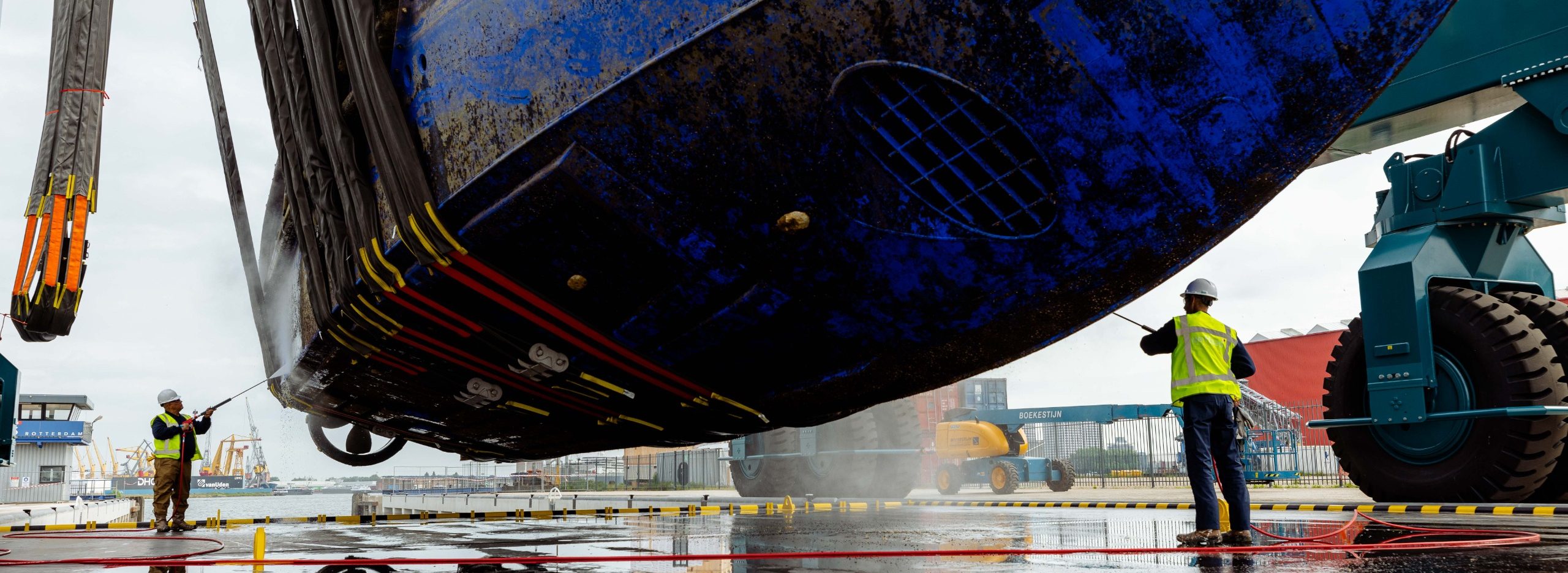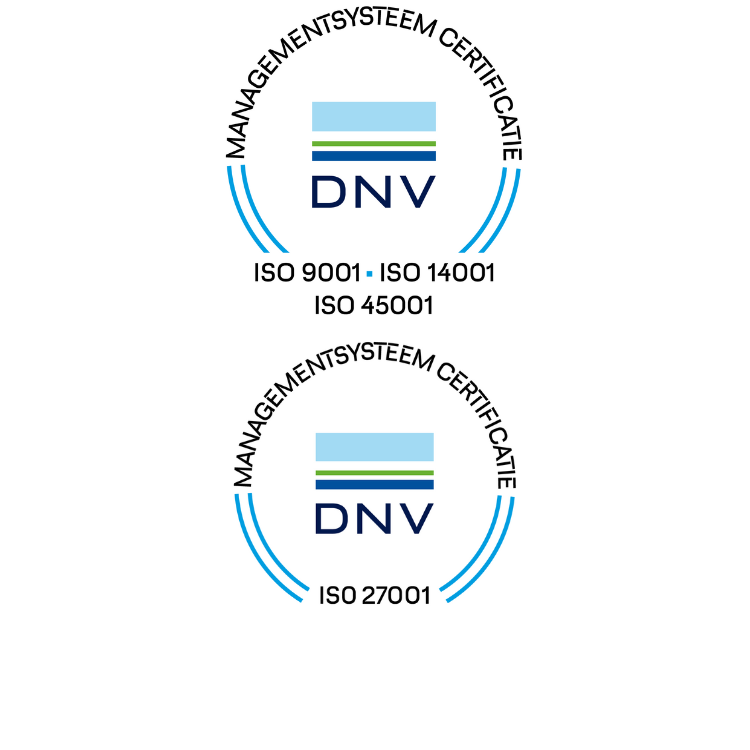
Sustainability
QHSE, CSR/Sustainability,
and CO₂ Reduction
The Quality, Health, Safety, and Environmental (QHSE) management system of De Haas Shipyards and Powerport is structured and based on the prevailing ISO 9001, ISO 14001 (including CO₂ reduction management), ISO 45001, ISO 27001, and various defence standards in accordance with ABDO 2019 and AQAP.
De Haas Shipyards and Powerport hold multiple company certificates that demonstrate our compliance with national and international standards for ensuring quality, health, safety, and environmental protection within our field of work.
ISO 9001
ISO 14001 incl. CO₂ reduction management
ISO 45001
ISO/IEC 27001
De Haas Shipyards is set to implement the ISO 27001 standard into its QHSE and SMS systems in 2023. ISO 27001 helps us identify risks and implement security measures suitable for our businesses, enabling us to manage or reduce information security risks for both ourselves and our clients.
De Haas Shipyards has formulated a policy document outlining the principles of our information security system. With these principles, we aim to control information security risks while maintaining our flexibility and operational efficiency.
You can access this policy document via this link.
By clicking on the links above, you can download or view the certificates.

CSR – CO₂
Sustainability and efficiency hand in hand.
At De Haas, we place a high value on sustainability – as do our clients. In all aspects of our work, we maintain a keen focus on the protection of people and the environment. Our yards are equipped with efficient technology, biodegradable coolants, and other environmentally conscious solutions.
In our efforts to minimise the maritime impact on the environment, we combine sustainability with efficiency, ensuring that corporate social responsibility leads not to adverse pricing effects, but to enhanced performance.
Sustainability is a way of working at De Haas Maassluis. We have implemented a certified CO2 reduction plan in accordance with ISO 14001 in demonstration of our commitment to corporate social responsibility and environmentally friendly operations.
Sustainability is a way of working at De Haas Maassluis. We have implemented a certified CO2 reduction plan in accordance with ISO 14001 in demonstration of our commitment to corporate social responsibility and environmentally friendly operations.
CO₂ reduction management
CO₂ reduction management
CO₂ reduction management utilises four perspectives:
- Understanding (of our own CO₂ footprint)
- Reduction (objectives and ambitions)
- Transparency (internal and external communication)
- Participation (engagement in reduction initiatives)
De Haas Shipyards and Powerport establish objectives annually to guide the implementation of these perspectives.
Objectives
Reduction of CO₂ emissions:
De Haas Maassluis and Powerport aim to reduce controllable and risk-contributing CO₂ emissions by 2.5% annually in the CO₂ footprint of scope 1 & 2. (see Goals in Milieubarometer).
In 2022, this led to a 49% reduction in gas consumption and an average CO₂ emission reduction of approximately 30% since 2019.
Reduction of CO₂ emissions in the supply chain:
By participating in sustainable initiatives and contributing to vessel sustainability, De Haas Shipyards and Powerport assist in reducing maritime CO₂ emissions.
Examples of initiatives include:
- Establishing a hydrogen and methanol refuelling station at the De Haas Rotterdam yard (in collaboration with the Port of Rotterdam).
- Designing and executing the conversion of a patrol vessel to methanol propulsion (in collaboration with RWS and C-Job).
- Researching, designing, and constructing potential future demonstrator hydrofoil boats powered by hydrogen fuel cells (in collaboration with Flying Fish and Zepp Solutions).
- Implementing hybrid propulsion technologies.
- Making existing propulsion systems more sustainable by utilising low-emission solutions and products, such as the installation of dual-fuel engines (diesel-hydrogen).
Enhancing sustainability in real estate;
- Insulating and making existing real estate more sustainable, including transitioning to energy-neutral facilities at De Haas Rotterdam.
Measuring, analysing, and improving waste streams;
- Applying a lifecycle perspective through the selection of sustainable partners, suppliers, and collaborations, while also minimising packaging materials, improving waste separation, and conducting waste prevention research.
Preventing environmental damage, such as soil and water contamination;
- Improving the temporary storage of diesel by acquiring double-walled PGS-certified diesel tanks.
- Implementing various measures at De Haas Rotterdam to prevent soil and water contamination, including the construction of a 10,000 m2 liquid-tight (certified) floor and a dedicated washing area for vessels near the lifting point.